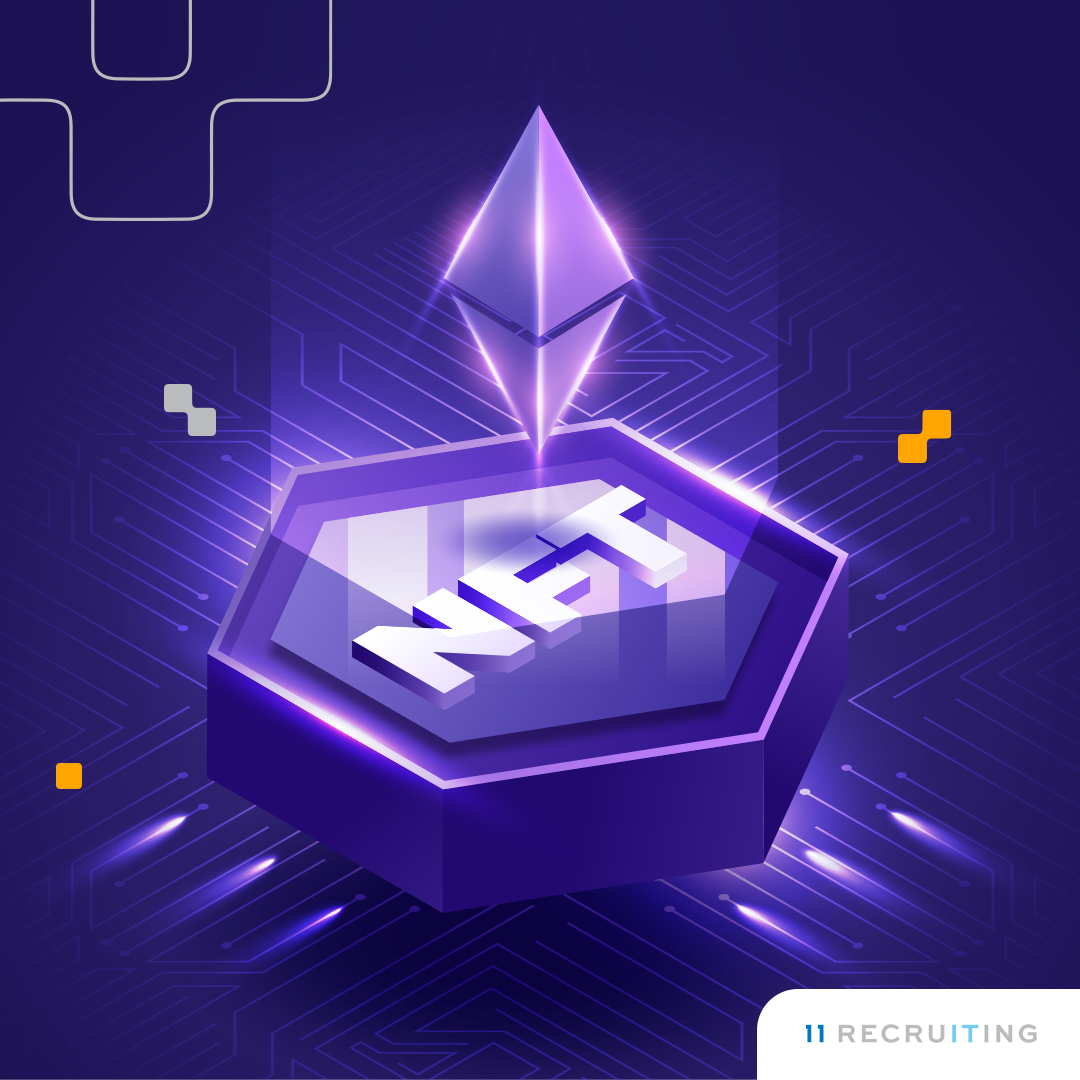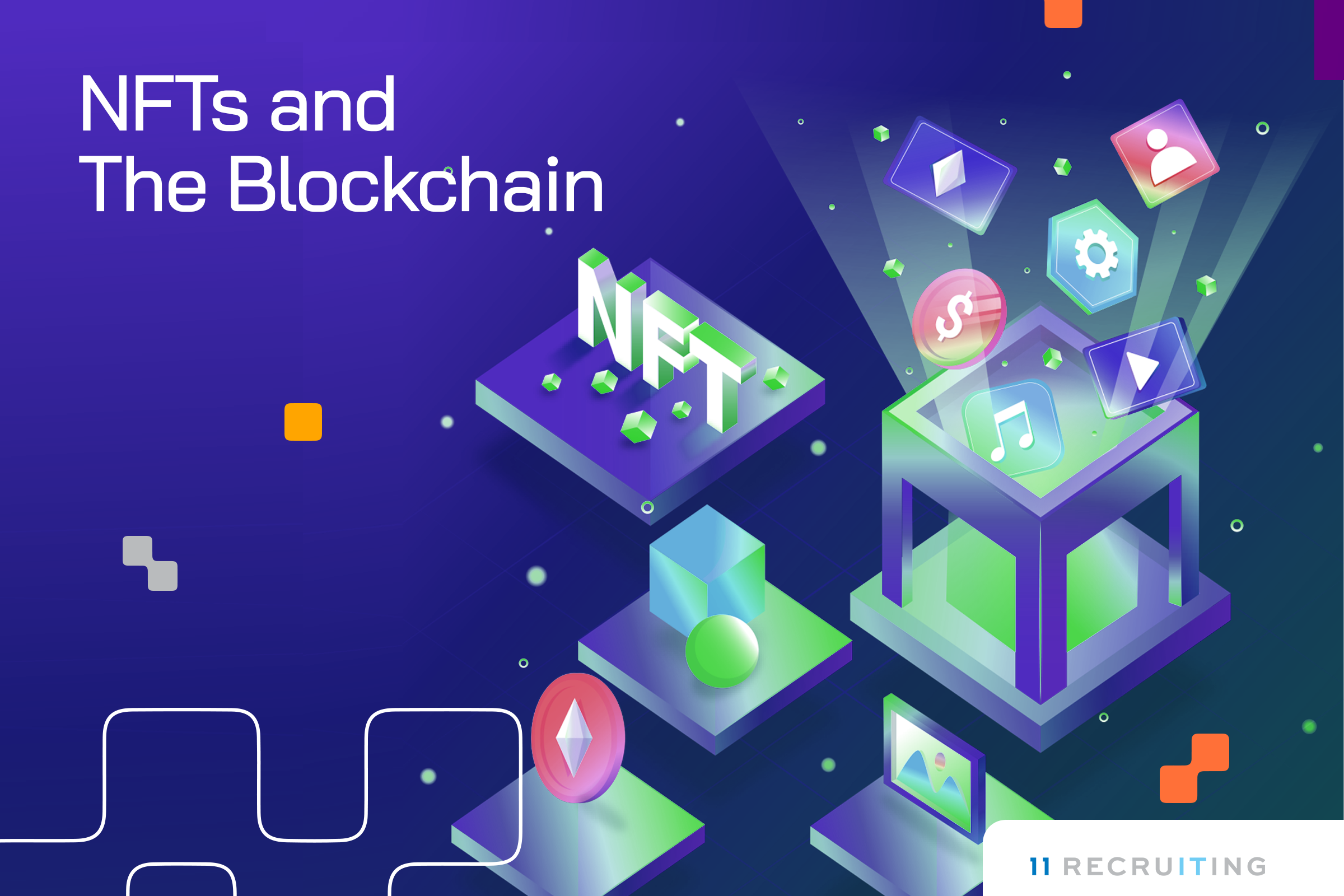
NFTs have exploded in popularity, especially during the Covid pandemic. But the concept of NFTs still leaves people scratching their heads, wondering, ‘What are they? How do you use them?’.
However, just like cryptocurrencies and the metaverse, NFTs are going to be big in the future, and everyone should have solid foundational knowledge on the matter (especially businesses and creative people).
This article will explore NFTs and discuss how they work, why they gained popularity. It will also talk about how NFTs can benefit both businesses and individuals.
What are NFTs?
Non-fungible tokens (NFTs) are genuine copies of digital (like digital art, ebooks, game skins) or physical assets (real estate certificates, song albums) in the blockchain network. They utilize the same technology as cryptocurrencies and are not interchangeable (i.e., no two NFTs are the same).
So what does non-fungible mean? The US dollar, for example, is fungible — it can be exchanged for other currencies — while your birth certificate is not, making it unique and one of a kind. Similarly, NFTs are unique, one of a kind, which gives them a lot of value.
An NFT can be any file you can upload, from text media and video to audio and gifs. In the future, it may also be possible that our IDs like passports and driving licenses may be made into NFTs so their authenticity cannot be tampered with and they can be recognized everywhere.
How do NFTs Work?
The majority of NFTs are built on the Ethereum blockchain. Ethereum is a cryptocurrency, and a blockchain is a secure system that keeps track of information and transactions.
So how to make an NFT? To create an NFT, there’s a process called “Minting” that allows you to post your art on the blockchain. All you have to do is upload your file to the marketplace, set a price, pay a fee (gas fee), and you’re NFT is created.
The Ethereum blockchain is a decentralized public ledger. It stores and verifies transaction details (like sender and receiver information, the amount of Ethereum transferred, etc.). When you purchase an NFT, you can track who has owned it through the blockchain. The blockchain provides a certificate of uniqueness specifically for that NFT. It makes the NFT non-transferable, which maintains the creator’s originality and makes the NFT unique.
Why are NFTs Gaining Popularity?
NFTs are skyrocketing in popularity, and understandably so – there’s plenty of money to be made in this space. Case in point – an artist, going by the name of Beeple, sold a digital piece of artwork to Christie’s (an auction house) for a price of $69.3 million. Big investors are seeing big value in NFTs and are pouring hundreds of millions of dollars into companies that operate in the space.
People see that there’s lots of money to be made in NFTs, just like cryptocurrencies. While not everyone makes it big like Beeple, plenty make hundreds of thousands of dollars selling NFTs.
Full ownership of digital assets is another huge factor in the popularity of NFTs. In the past, if you hosted your digital content on a platform, then the platform had complete control over it. They could remove your content whenever they wanted to. But with NFTs, you have full control and rights over your content. If a platform removes your content, you can share it on other platforms. NFTs give the power of ownership back to the people.
Many people also got into NFTs during the Covid pandemic. People stuck at home wanted to find ways to have community, connection, and meaning. NFTs offered a way for fans to get in touch with the creators of their favorite digital products. Some creators become active participants in their own communities – hosting face-to-face interactions, offering early access to their digital goods, and creating a sense of community.
Several celebrities also contributed to the NFT hype, including Eminem, Snoop Dogg, and Tony Hawk. Celeb power has always been a significant factor in influencing mass culture, and celeb endorsements boost the credibility of NFTs in people’s eyes, making them popular.

Reasons Why Businesses Should Care About NFTs
Marketing is one of the major reasons businesses should get into NFTs. For example, Taco Bell created NFT gifs to support the Live Más Scholarship. The scholarship is for innovative and creative students who want to pursue their passion through higher education. The gifs ended up selling for thousands of dollars each, supporting the students’ dreams and helping Taco Bell build brand awareness.
Fashion brands should also watch the NFT space. Brands like Gucci are using this to appeal to a broader audience. They recently collaborated with the app Wanna and released a pair of virtual NFT sneakers. Buyers who purchased these sneakers could wear them on the Wanna app and try them out virtually, just like a face filter.
As a business, you can also create digital versions of your products, which opens your business to new customers. For example, an automobile company can create a digital NFT of their car models, and those models can be used in different racing games. Using NFTs in your business go a long way in marketing your product to a younger audience.
Your business can also harness the combined power of social media and NFTs to create awareness about your brand, drive consumer engagement, and make content that’s fun for people.
Reasons Why Individuals Should Care About NFTs
NFTs benefit two types of individuals: creatives and those who like making money buying and selling digital assets in the NFT marketplace.
It offers an excellent chance for artists to earn a living doing what they love. As an artist, you can make money in two ways, by selling your NFTs as a one-off sale (in NFT marketplaces like OpenSea and Rarible) or by earning royalties (if your digital assets create future value and lead to sales).
For those interested in making money from NFTs, you can buy and sell NFTs in the stock market, just like you would buy and sell stocks in the stock market. Do some research on different NFTs and purchase the ones you find have a lot of future value. You can then sell these NFTs when the opportunity is ripe.
Frequently Asked Questions
How are NFTs different from cryptocurrencies?
NFTs are different from cryptocurrencies – unlike cryptocurrencies, NFTs cannot be traded. Cryptocurrencies can be traded with one and another and they will be no loss to their value. However, both NFTs and cryptocurrencies share similarities in that they both use blockchain technology.
Who Is Buying NFTs?
Investors, flippers, collectors, fans, and anyone invested in the NFT space are people who buy NFTs. Other than ordinary citizens, even celebs like Gary V, Mark Cuban, and Jay Z purchase NFTs.
Are NFTs taxable?
Yes, the profits gained from selling NFTs in marketplaces like Rarible and OpenSea are taxable. These profits are considered income and are taxed as ordinary income tax.

